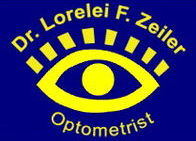How Vision Therapy Supports IEPs and School Success

When a child struggles in school, parents and educators work together to create an Individualized Education Program (IEP) to meet their unique needs. While IEPs often focus on learning disabilities, ADHD, or developmental delays, vision problems are sometimes overlooked as a contributing factor to academic challenges.
Many of the symptoms that lead to an IEP—difficulty focusing, reading problems, or poor performance on report cards—can stem from underlying vision issues.
Introducing vision therapy: an effective treatment program that helps students improve their visual skills, which in turn can enhance their academic performance.
What Is Vision Therapy?
Vision therapy is a personalized treatment program designed to correct visual skills that cannot be improved with glasses or contact lenses alone. It focuses on enhancing how the eyes work together, improving abilities such as:
- Focusing on close-up tasks
- Eye tracking while reading
- Visual memory and perception
- Eye-hand coordination
For children with IEPs or who are struggling in school, vision therapy can address specific visual deficiencies that may be contributing to their academic difficulties.
How Vision Problems Affect Academic Performance
Many children who struggle in school have undiagnosed vision problems. These issues can manifest as behaviors or difficulties that resemble learning disabilities. Some common vision-related symptoms include:
- Skipping lines or words while reading: This could be due to a tracking issue, where the eyes don’t move smoothly across a page.
- Trouble focusing on close-up work: Difficulty maintaining focus can mimic the symptoms of ADHD and lead to poor concentration in the classroom.
- Poor handwriting or trouble copying from the board: Eye-hand coordination is crucial for writing and other school tasks. Vision therapy can help improve coordination, making it easier for children to complete assignments.
- Difficulty retaining visual information: Visual memory is essential for reading comprehension and following instructions. Vision therapy exercises can help children improve their ability to process and remember what they see.
Without proper diagnosis, these vision issues may be mistaken for other learning difficulties, and the child’s academic performance can suffer as a result. An eye exam with The Office of Dr. Lorelei Zeiler can identify whether visual problems are contributing to poor grades or the need for an IEP.
The Connection Between IEPs and Vision Therapy
When a child qualifies for an IEP, the goal is to provide them with the tools and support needed to succeed academically. For some students, vision therapy can be a key part of this support. Vision therapy works alongside the accommodations in an IEP by targeting the visual skills that are essential for learning, such as:
- Reading fluency: By improving eye tracking and focusing abilities, vision therapy can help children read more smoothly, improving both their reading comprehension and speed.
- Classroom attention: Vision therapy can help reduce visual strain and improve focus, allowing students to pay better attention to their lessons and complete tasks more efficiently.
- Behavioral improvements: Children who experience frustration, frequent headaches, or eye strain due to vision problems may act out in class. Vision therapy can alleviate these symptoms, reducing stress and improving classroom behavior.
For many students, including vision therapy in their educational plan can lead to significant improvements in both their academic performance and confidence.
How Report Cards Can Reflect Vision Problems
A child’s report card can be an important clue that vision problems are affecting their academic success. If you notice your child’s grades are lower than expected or falling behind in reading, writing, or math, a vision problem may be at the root of the issue.
Look for these signs on report cards that might indicate a vision-related issue:
- Low reading or writing scores: Difficulty with reading comprehension, slow reading speeds, or messy handwriting can be signs of an undiagnosed vision problem.
- Comments about focus or attention: Teachers may note that your child has trouble staying focused during class or completing assignments. This can often be linked to visual fatigue or difficulty focusing on close-up tasks.
- Frustration or lack of effort: A child who struggles with vision may feel overwhelmed and disengaged from schoolwork, leading to poor grades and negative comments about their effort or attitude.
By addressing these issues through vision therapy, children can experience improvements in their academic skills, leading to better grades and a more positive outlook on school.
What Parents and Teachers Can Do
If you suspect your child’s IEP or school performance may be affected by a vision issue, it’s important to act. Here’s what parents and teachers can do:
- Schedule an eye exam: A comprehensive eye exam with The Office of Dr. Lorelei Zeiler can determine whether a vision problem is contributing to the child’s academic difficulties.
- Advocate for vision therapy: If vision issues are identified, vision therapy can be included as part of the child’s educational support. By targeting visual skills that are critical for learning, vision therapy can enhance the effectiveness of an IEP.
- Monitor progress: After starting vision therapy, monitor your child’s academic progress and work closely with their teacher to track improvements in reading, writing, and classroom behavior.
With the right support, students can overcome vision-related challenges and thrive academically.
If your child has an IEP or is struggling in school, vision therapy may be the key to their success. Schedule an eye exam with The Office of Dr. Lorelei Zeiler to learn how we can help.
